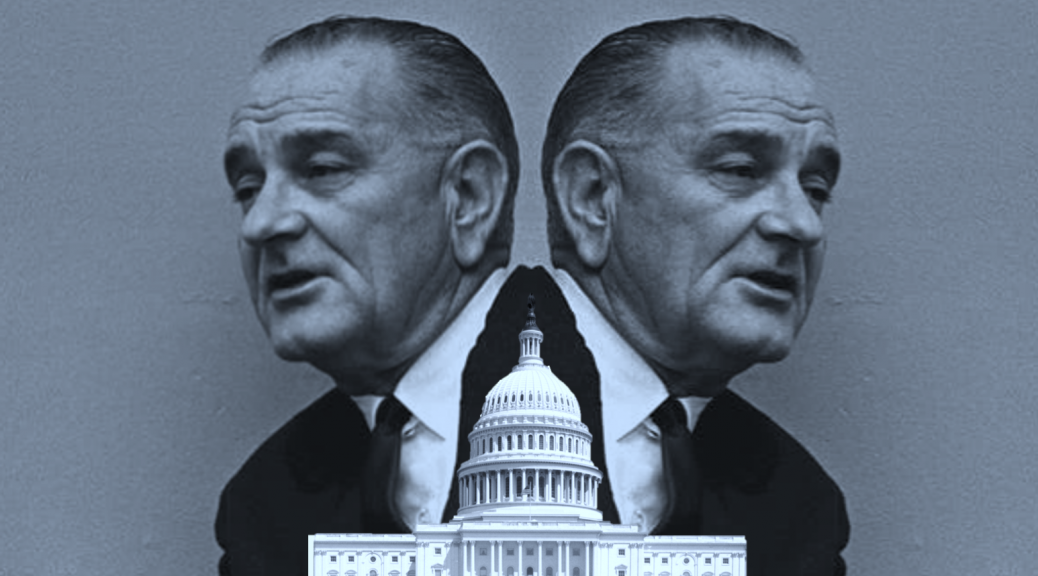
Considered one of the eminent biographers of the 20th century, Robert Caro has dedicated a big chunk of his career to two political powerhouses: one is Robert Moses (the broker of New York government) and the other is the 36th President of the United States of America, Lyndon Baines Johnson. For this analysis, I’ve opted to focus on key takeaways that I’ve gleaned from a speedread of Books III Master of the Senate (the 1950s), 1,232 pages and Book IV The Passage of Power, 768 pages (’59 – ’64). Still waiting for Book V of the Years of Lyndon Johnson, which will focus on Vietnam, the late-Sixties (’64 – ’73) and be about 2,500 pages in my estimation ;-P Caro provides such meticulous detail that you have to question his sanity at times. If we had 15 Caros then we’d really be able to crack open the inner workings of government. He’s nutty about detail. You can smell Johnson’s smokey oval office as you read. He writes from an empathic and human perspective. And he excels at putting the reader right in the scene. Putting great writing and interesting people together and you’ll realize just how the game is supposed to be played. Now, that Johnson….he knew how to work a deal…he knew how to play the game. Here’s how he played it:
Key Takeaways from Master of the Senate
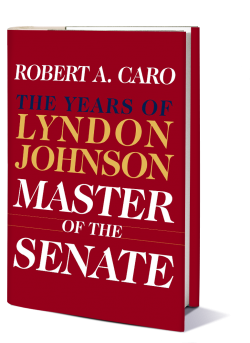
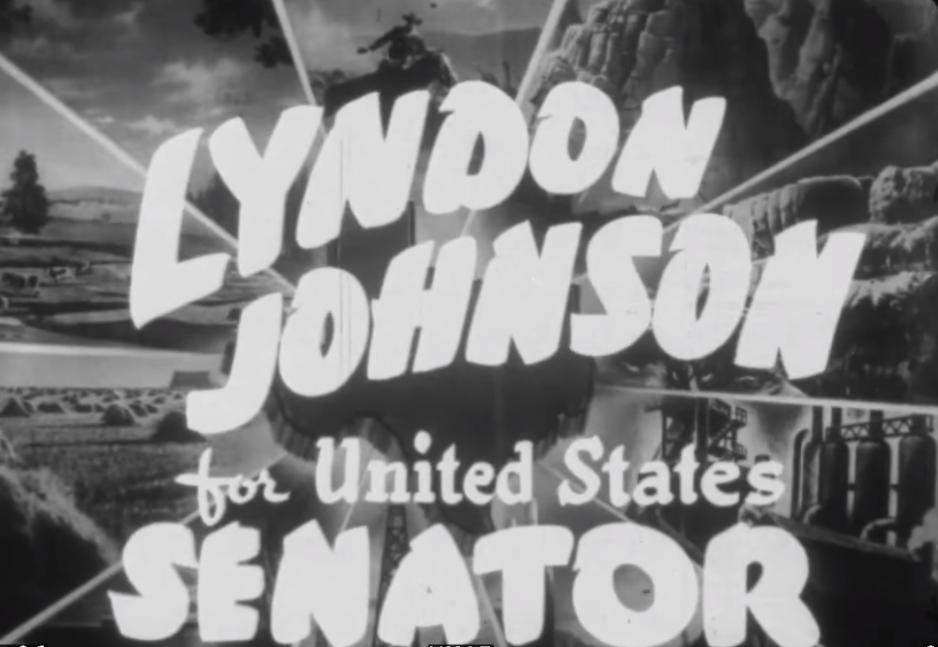
Thoughtful Teacher Turned “Look ’em In The Eye” Political Animal
Lyndon Johnson’s 1948 senatorial campaign ad suggested that he would look you straight in the eye and tell you where he stands. This was only half true. The nature of politics being what it is; alliances, maneuvering and a series of triangulations where possible, meant Johnson was anything but a look ’em in the eye truthsayer. He was a social animal, but he was still a savage animal. He would do what it took if it suited him politically for example, accept the vice presidency, which had been described in the “congress as about as useful a job as a bucket of warm spit.” (Caro, MotS, 123)
Robert Caro’s mantra is that power reveals. The person who can make things happen when others didn’t believe it could be done is truly powerful. And this is certainly true in the case of Lyndon Johnson…He had to balance human decency with getting things done.
While there was racial injustice in the Dixiecrat-south and Johnson witnessed discrimination as a school teacher near the southern border, he was also a negotiator between competing factions in parliamentary representative democracy. Back in the 1930s, he enjoyed teaching Mexican-American kids in south Texas and even taught the school janitor in his spare time…But when it came to his legislative work, it was a different story. For example, Mexican Americans largely wanted to prevent illegal immigrants from entering and displacing legal Mexican immigrants, according to community leadership as at the time. But Johnson’s Anglo grower business leaders loved the wet-backs (Mexicans who had illegal crossed the Rio Grand). So Johnson opposed increasing fines for employing illegal immigrants to align with what his political bosses supported.
Johnson had to turn around and charm/convince the Mexican American movement that “[he was] on [their] side!” by saying a) his “heart was in the right place”, b) the timing is not right, c) that policy will not pass the senate….Perhaps too Johnson knew the MATH. And the math showed that Mexican Americans had nowhere else to park their vote except with Democrats and as such, Johnson largely ignored them at little cost electorally.
Welcome to political reality starring Lyndon Johnson. Next stop? Electoral fraud.
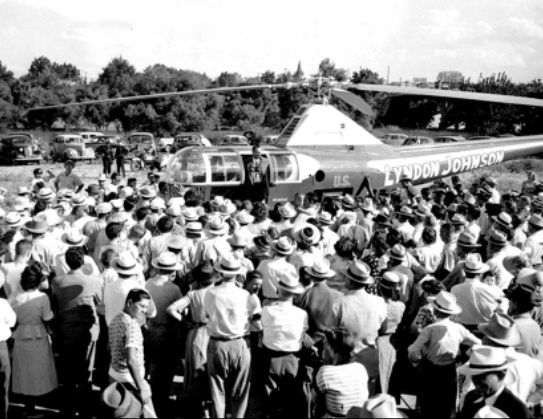
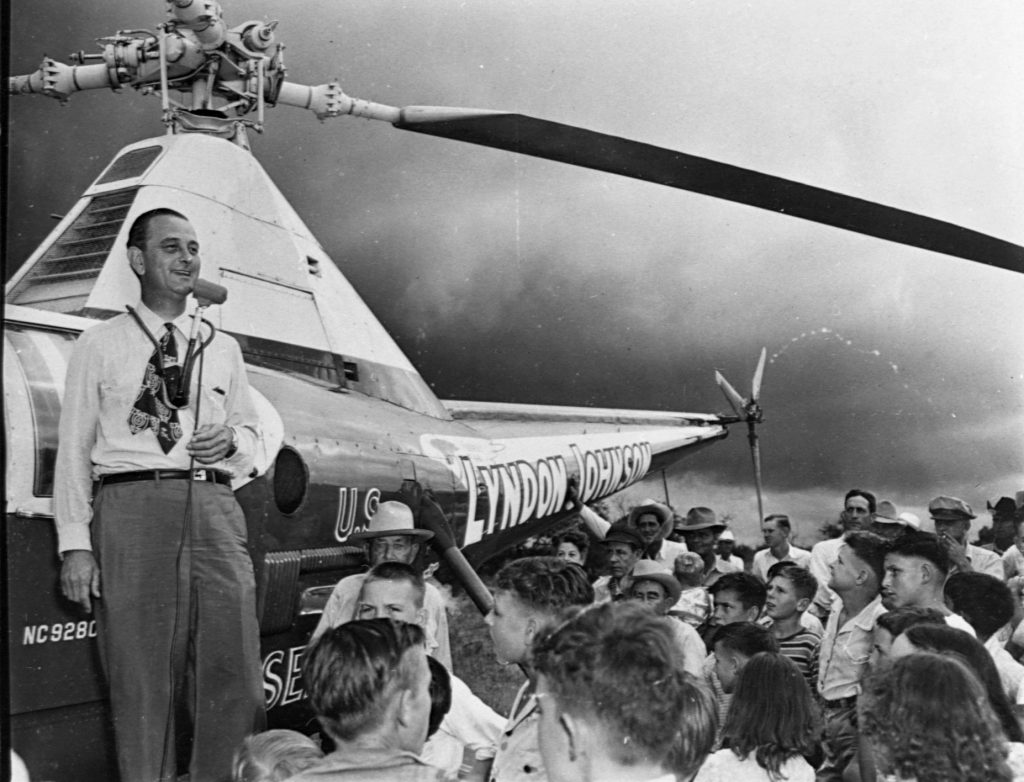
Vote ‘em or Count ‘em – The Stolen ’48 Primary
‘Bull Johnson’ stole a college election and so a pattern was set early…win at all costs. During the Democratic primary for US senate in 1948*, Mexican Americans on the border were corralled to either ‘get these folks’ to vote for themselves or just simply go around to their communities and then count and tabulate their votes at the polling station. This had gone on for years and in fact in the 1941 Senate Democratic primary race, Johnson had lost against W. Lee O’Daniel in part because Johnson’s team declared his final count before O’Daniel who upon learning Johnson’s total…..how shall we say…..’adjusted’ and announced a higher count. Johnson wouldn’t let that happen again, it’s better to wait until after your opponent has declared their count so that you can then steal the election with the right number of votes to “beat ’em fair and square” 🙁
In 1948, while Johnson ran a great campaign featuring a helicopter-stopping-tour, there was also a big fly in the ointment. Namely, John Connally and Johnson stole the election! Caro thinks the true number of faked ballots was in the 10,000s but after Johnson had passed away, it was revealed, with substantive evidence, that there were indeed 202 fraudulent ballots for L Johnson over C. Stevenson in Jim Wells County, Texas. The Johnson’s margin of victory was only 87 votes! Whoever won that primary would be guaranteed a seat in the senate given weak Republican candidates. So Johnson’s senate career was made possible in part with illegal voting tactics.
Naturally, Stevenson went to the courts over this but Johnson had friends in high places (for example Abe Fortas who Johnson would later appoint to the Supreme Court) and the legal challenge was killed at the Supreme Court level since it was an internal Democratic party matter. Who is to say that there wasn’t counter-fraud by Coke Stevenson’s people in another district? Caro interviewed John Connally who explained, Stevenson couldn’t have cheated as effectively as Johnson because he didn’t know how! Ultimately, Johnson was dubbed “Landslide Johnson” as a joke by his critics given the narrow victory but Lyndon Johnson was all too happy to use that moniker himself. This truth bomb was a major reason that none of Johnson family participated in Caro’s research….but John Connally set the record straight near the end of his life.
*Side note: Aside from harvesting ballots to beat Stevenson, John Connally helped Johnson by repeating over and over again in campaign ads the same lies in what was the first era of negative radio campaigns. Johnson bought all the radio station time that he could in order to make sure every Texan heard his pitch and his negative attacks against the favourite son of Texas, Coke Stevenson.
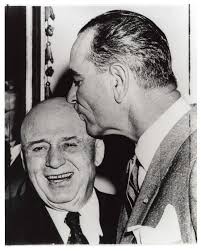
Network with the Existing Players
Ever since he was a child, Johnson wanted to win at all costs. That included winning arguments, he just had to win and be a somebody. At one point, early in his teaching career, Johnson jumped at the chance to be a congressman, he wanted the job so badly. There are two key individuals that Johnson befriended in order to be come an epicentre of power himself:
- Sam Rayburn (House Majority Leader ’37 – ’40, House Minority Leader ’53 – ’55, Leader of the House Democratic Caucus ’40 – ’61, Speaker of the US House of Representatives ’55 – ’61): was a life long bachelor who befriended Lady Bird Johnson on account of their similar personalities: quiet and unassuming. Lyndon invited Rayburn for lunch when he and Lady Bird got married and Johnson and Rayburn were like father and son. Johnson lost his father and Rayburn never had kids but wanted a son badly. Johnson fit the bill and Rayburn would come over regularly to their little apartment in Washington. When Johnson asked a favour the most powerful man (Rayburn) in Congress got it for him. Over time, Johnson become a conduit through which congressmen could gain access to Rayburn’s ear even after Johnson moved to the Senate…and Johnson knew that if you wanted to get anything passed in the Senate, you also needed the House. Johnson would later throw him under the bus by stirring up resentment between FDR and Rayburn so that LBJ could take over as the power broker for Texas…..
- Richard Russell Jr (United States Senator ’44 – ’71, Chair of the Senate Committee on Armed Services ’55 – ’69 , Chair of the Senate Committee on Appropriations ’69 = ’71): would have breakfast with Lyndon Johnson every Sunday, go to baseball games, was the key to Dixiecrat support and he had blocked every civil rights bill that he could. And Johnson convinced him that he was one of them. Johnson would later throw Russell under the bus as well on a myriad of issues…civil rights being the one things Russell could not abide.
And so Johnson basically built up strong relationships with the people who were involved at the right level through his work. He go the job at the NYA as a junior through the help of Sam Rayburn. If you want it badly enough you can get it, even if like Johnson, you went to a “crumby university” with a troubled childhood etc. it’s the American dream in the flesh folks! The Dixiecrats raised him up to Senate leadership because they believed that he would protect their anti-civil right bill stance. And Lyndon got their trust by asking for “your wisdom” to every senior politician he could ingratiate himself with. For example, Johnson was very submissive to Harry Byrd and would basically suck up to him since Byrd had control over the finance committee. Didn’t matter that Byrd was a financial hawk. Crossing-the-aisles was table stakes for Johnson.

Tactic – Legislative Log Jams
There are only so many legislative hours in a session (and the intent was to fill them up with obstructions if you didn’t like a major bill that stood a chance of passing). Bills have to be re-introduced if they do not get passed in a legislative year and that means time is the ally of obstructionists.
Have a type of legislation that you want to block? Well, in 1948, Johnson’s mentor did. In the 1948 session, Dick Russell (leader of the Dixiecrats) looked at legislation that was set to expire in 1949 and found a bill that could not be delayed: rent control legislation.* Plotting in his office with Lyndon leaning back in his chair, Russell coordinated over the phone with the Dixiecrats to delay reading of the rent control bill and other relevant legislation that supported the rent control law…Now why would he do that? Because civil rights legislation was on the table as well.
A log jam is the obstructionists best friend. The southern Dixiecrats wanted to filibuster the civil rights bill on the floor, IF cloture was imposed on the motion. The cloture votes didn’t materialize and other bills like the rent control one were set to expire in early 1949. So the northerners had to withdraw the civil rights bill in order to get the rent control bill through. See how that works? They had to withdraw the civil rights bill because otherwise they wouldn’t be able to pass anything and since the rent control helped urban dwellers in northern states, civil rights was de-prioritized. “Shoot! We can introduce [civil rights legislation] next session though” This log jam strategy made any civil rights legislation impossible, holding hostage a rent control bill if your opponent doesn’t withdraw human rights legislation, now that’s representative democracy in action, folks. A crying shame.
*Side note, back in the 40s, government intervention on rent control was considered to have no unintended consequences which was later to be proven false, rent control creates an artificial new floor that can actually make housing more scarce in more circumstances then is conventionally accepted…
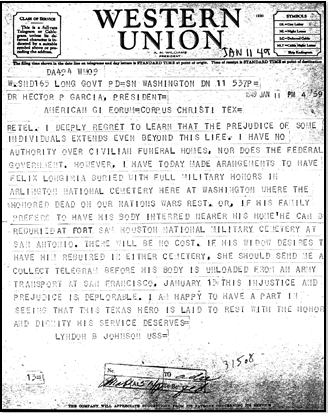
Longoria Incident – Gestures Can Matter
It was 1949, service man Felix Longoria, who had died in World War II, was refused burial through his hometown funeral chapel because he was Mexican American. The good Lyndon Johnson didn’t realize that “discrimination followed you into the after life” and replied to a letter of complaint by suggesting that the Mexican America veteran be buried in Arlington cemetery. It was a gesture but still Johnson worried he might get screwed by the white establishment ie. those south Texas Anglo leaders that “I need for re-election!” The political calculus tells us that the Mexican American voters did not have that same level of organizing power.
When Longoria’s body arrived at Arlington, his family was given a tour of the capital but Johnson hid himself from the public eye on the occasion. Better not to upset the base…After all, in Texas the legislature investigated the funeral homes refusal and concluded there was no discrimination. Case closed. To keep Dick Russell’s support, Johnson had to maneuver. In the long arch of history, it does bend towards justice…slowly. Later, Johnson made sure that Mexican American veterans got their full rights under his presidency.
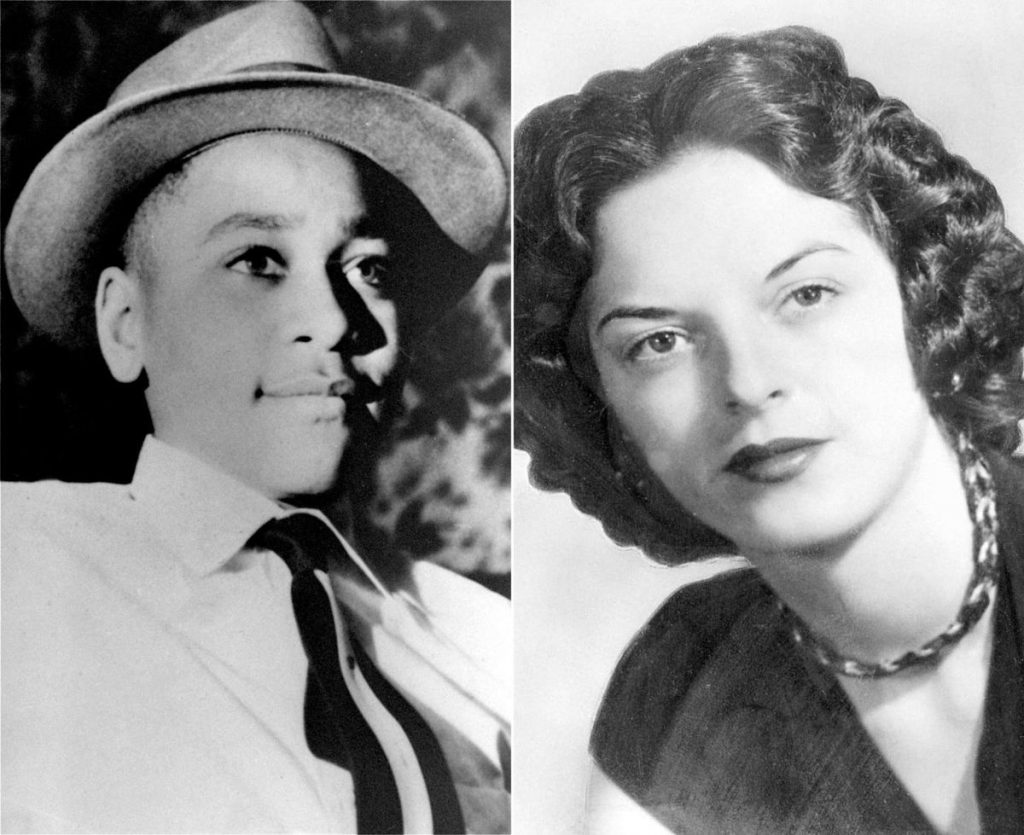
Emmitt Till’s Murder and Other Evil Acts of Racism
The south had very racist antagonists in its midst, willing to kill black Americans who thought they should have the right to vote in the south. Meanwhile, Jim Crow south created roadblocks to voting such as reading tests, poll taxes and comprehension tests in order to prevent black Americans from voting in local and state elections. This suppression even extended in an informal manner by simply turning black voters away on election day on sight…and it was socially acceptable to do so. In some cases, black Americans were shot or killed for trying to vote. Caro provides graphic details that are shocking to behold. Nothing can justify these despicable crimes against all humanity.
Things came to a head when a northern African American named Emmitt Till (aged 14) was brutally murdered for talking to a white female shopkeeper in a suggestive manner. His bloated corpse and mutilated face were on display at his funeral drawing national attention. It is very sad, from an outsiders perspective, to think this could happen in the US. Many acts of racism were couched as part of massive resistance. The murderers in Mississippi, after they were acquitted of Till’s murder by an all white jury, told their story to the press saying that Till didn’t respond to their ‘whipping him’ the way they liked so they ‘made an example’ of him. Adding that they did not want blacks in their white schools and the whites had fought for their right of segregation. These two demented criminals had lawyers, of course….And they were supportive? Yes, the lawyers let their clients do an interview to show the northerners that the ‘whites of Mississippi’ were not going to accept desegregation. They, in fact, wanted to repeal school desegregation: Brown v. Board of Education.
It gets worse and worse, in 1956, there was the 26 year old black women who wanted to be a librarian via Tuscaloosa at the University in Alabama. What’s the problem? Oh, there were actual white riots/protest (1,000s of white student) to prevent Autherine Lucy from being a classmate. She had to move to New York. Caro doesn’t give any credence to these racist white students but we have to acknowledge that they, as a group, must have thought they were in the right, protecting their culture and that they did have a hateful rationale which was wedded to the Democratic party’s southern contingent.
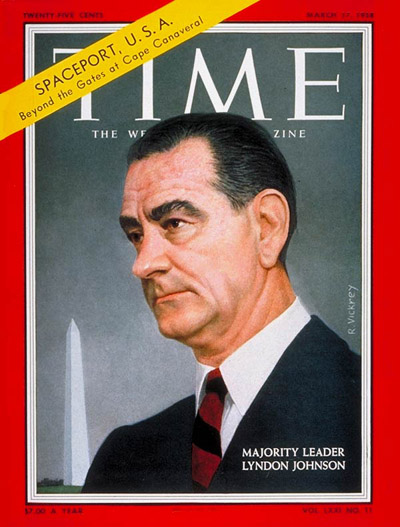
Becoming the Senate Pro: Through Outworking, Outcourting and Outhorse-trading
Back in Washington, Johnson went from minority leader of the United States Senate in the 1952 election (46 Dem / 49 Rep) to Majority leader in 1954 (48 Dem / 47 Rep). After his long “courtship” of senior senators, like his critical ally Richard Russell (the master of the Dixiecrats), Johnson was now wielding immense power over:
a) who got which committee assignment,
b) the agenda on the senate floor,
c) the counting of votes,
d) the issuance of committee powers.
It was horse trading politics, the kind that flies in the face of true democratic engagement. But he worked as a wild animal of the representative democracy that “we’re stuck with.”
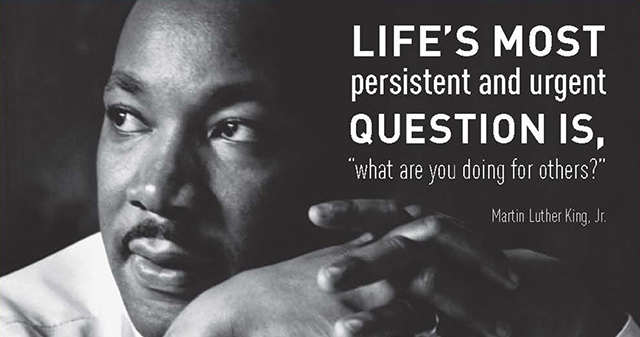
Martin Luther King Jr Made Many Sacrifices Including Persisting After His House Was Bombed
Caro details the threats of violence against Martin Luther King which also included the regular fire bombings of his home. Montgomery white agitators actively threatened and harmed black citizens in order to deter integration and voting rights. Take a moment, in this the 21st century, to consider how horrible that was and where we’ve come and where we’re going…

Tactic – Count Your Parliamentary Votes Like Your Career Depends On It, ’cause It Does
Sam Johnson Jr (Lyndon’s Dad) had lost the family farm because he committed to a mortgage that he figured would be covered by the revenue from his cotton production. He was wrong. The land could not sustain that mortgage, the soil was only an inch thick with granite underneath. In farming, if you get something wrong you could lose your house. Rural life is austere, the social safety net is small. And so you can’t afford to make a mistake.
Lyndon took this to heart and into the Senate. When his whip would say, “I think he’s voting with us” Johnson famously replied “what good is thinking, I have to know!” (Caro, MotS, 453) Johnson was an obsessive vote counter on every bill. He was keen to gauge and predict the legislative path of a bill. Throughout his tenure in the senate, Johnson rarely lost passing legislation because he worked hard to know where each man stood. Winning requires tracking vote counts tightly.
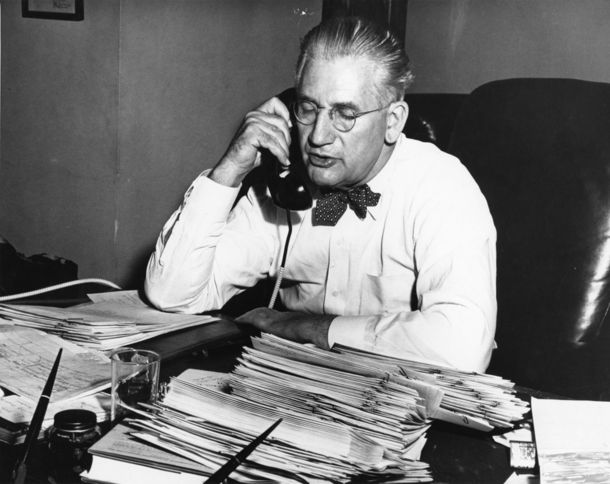
HR-6127 which became The Civil Rights Bill of 1957 / Handling Paul Douglas Part 1
Lyndon Johnson did not want a civil rights bill to split his southern support base in 1956. He was planning to run as the Democratic presidential nominee and simply could not allow such a landmark bill to come to the floor and force him to take a side. So his tactic was to delay the bill. The HR6127 was going to be delayed, it had to be, in Johnson’s mind, otherwise it would “destroy” Johnson’s chances for the Democratic party nomination.
Enter [stage left] Paul Douglas, a liberal in the senate, who believed that a gesture to black citizens was important, NOW in 1956, even if the session was nearing the end of the legislative year. Douglas felt that if we don’t fight immediately then there will be a revolution, incremental change was essential given the counter-threat of riots in Alabama and Mississippi. Douglas wanted to “get out of the shadow of states rights into the sunlight of human rights.” The Dixiecrats were all senior leaders in the legislative branch because they never lost their elections over a succession of Republican “freedom loving” challengers.
To complicate the situation, Eisenhower was very weak on civil rights. “Eisenhower was a fine general and a good decent man, but if he had fought World War II the way he fought for civil rights, we’d all be speaking German right now.” – Roy Wilkins. And so a coalition of southern Dixiecrats, with Johnson’s two-faced leadership, could block the bill from ever getting passed.

Tactic – The Ol’ Recess versus Adjournment Trick / Handling Douglas Part 2
Johnson as the Master of the Senate said that he needed to prioritize another bill that Eisenhower wanted to get through; dealing with the Suez Canal etc. On the Tuesday of the last week of the legislative year, Douglas tried to introduce bill HR6127 which was the landmark rights bill from the House of Representatives. This was to be done with a petition, but it was noted that ‘petitions may only be read in the morning hours’ (unless there was unanimous consent). Russell (Johnson’s right hand man) said he would not be able to grant unanimous consent. So Douglas said “fine, Wednesday, July 24th, 1956 is when we will look at this bill” and Johnson then (as majority leader) said instead of adjourning for the next morning, he said ‘recess’ until the next day.
Now that wouldn’t sound like a big difference for you and I but this procedural difference meant that the next day, even if it was the ‘morning hours’, it was still a continuation of the previous day’s session and thus was not a morning hour session since this morning was a continuation of the previous days legislative day. When Douglas was not able to initiate a new legislative day, he complained. Johnson blocked all that. Douglas said there was no way to get HR6127 through to the newspapers but the headline read: “The Liberals misunderstand Senate rules.” To force the decision, Johnson decided to do a roll call vote. Douglas was voted against, 76 senators voted against him introducing HR6127. Defeated and angry, Douglas went up to his office and cried.
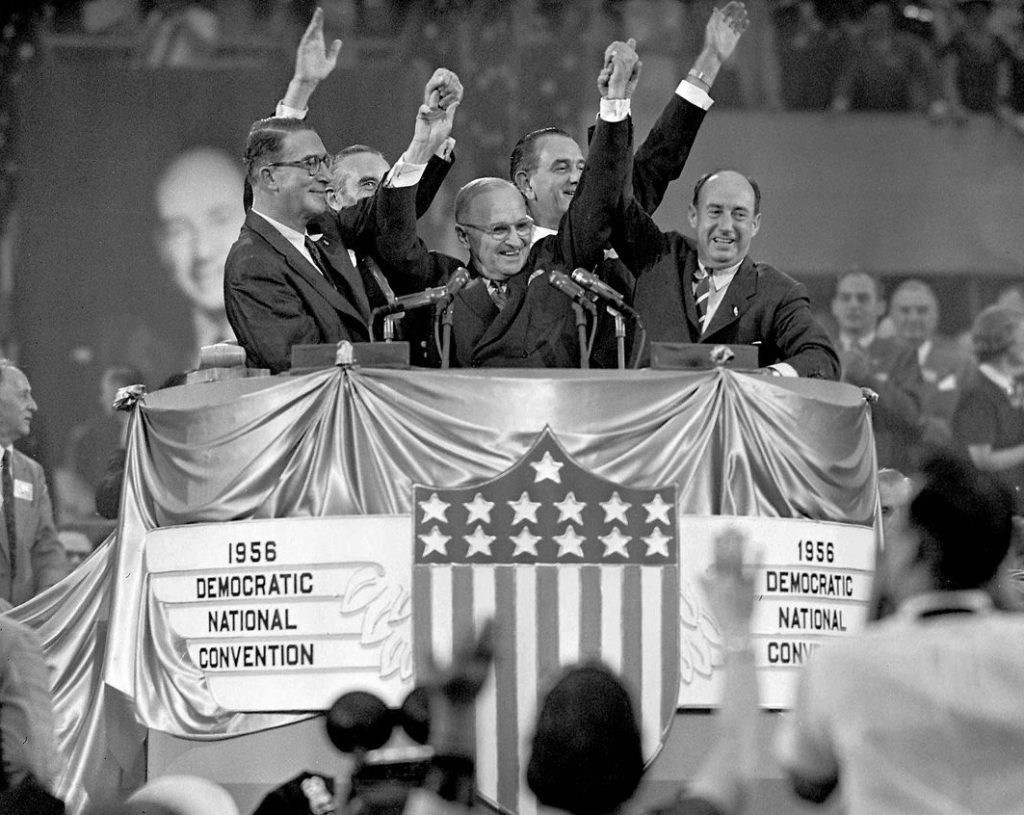
1956 Democratic Nomination – Leaving things to chance
Johnson crushed the civil rights bill in the Senate but party conventions were not his strong suit. The rules were very different. The Senate was a legislative brokerage house. Johnson was running in earnest as Truman decided against Adlai Stevenson running again and Truman’s backing was sacrosanct. Johnson saw an opening for the big prize. But he was not able to avoid the antipathy of northern Democrats.
Adlai Stevenson was the least liberal of the candidates running. No one was able to close on Stevenson. Meanwhile, Johnson wasn’t appealing for votes and wasn’t committing to stay through to the convention. Johnson seemed afraid to lose. He didn’t seem to try for the nomination really. He didn’t want to be branded as a southern candidate. He tried to convince people one to one. Unfortunately, other candidates were coming to see Johnson to get his Texas delegates. Johnson was not vote counting all that seriously either, he was delusional, believing he could be a dark horse nominee. He basically tried to win the nomination from the convention hotel suite.
After Adlai Stevenson won the nomination, he visited with Johnson but Johnson was told “no” by Stevenson’s team relating to putting together a civil rights bill that ‘considered/protected (white) southern values.’ Johnson was single minded. Be on the highest vote-totalling side in the immediate legislative window so as to garner influence and coral support favours to be debited in the future.
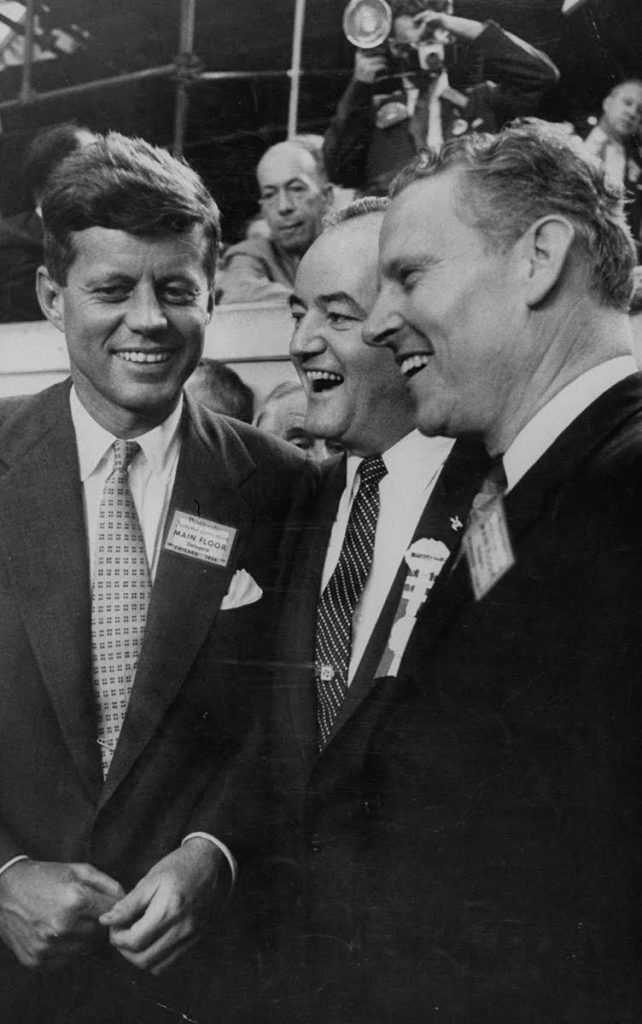
1956 VP Selection
Johnson was considered for the vice presidency, sure but Stevenson said that the convention ought to select the VP in an open vote. At the time, it was novel, later this was viewed as yet another example of indecisiveness on the part of Stevenson (i.e giving away more strategic coalition building to democratic power = not leadership). Leaders don’t ask for opinions, they ask for votes and the voter can go away thereafter. 1950s machismo! Kennedy was in the offer for VP under Adlai Stevenson. Kefauver won the nomination in the end, however.

The Johnson Treatment: Cavalier Chatter, the Long Antenna and Physical Abuse
He was a peoples person in a way. During senate votes he would yell across the floor to ask a senator to “change your vote right now!” He was bold. Johnson was the type of 6’4″ man that would run to the back couches in the senate chamber and corner a senator and wrap his big arms around the fellow he was trying to cajole. Later in the 60s, it was revealed that Herbert Humphrey had had two bruised shins from that time Johnson kicked him hard for moving to slow on vote counting. Johnson would grab people by their lapels and even put his finger through their lapel so they couldn’t escape without agreeing with Johnson. He liked to poke hard at a man’s chest to get his point across if he could.
Johnson revealed to Arthur Schlesinger that he tracked each senator’s life story with great interest: in a notebook akin to today’s Salesforce. Johnson could do imitations of other politicians. Johnson knew who would respond to which arguments as well. Johnson also believed that the North posted up weak politicians. The southern Democrats had the better, harder negotiating / horse trading candidates in his mind.
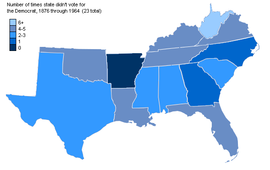
Tactic – Lyndon Johnson Tries to Win the North
Johnson saw that he would always be a “southern boy” unless he could swing to the Liberals: he needed to pass legislation but also couldn’t dispense with the south. Civil Rights was something Johnson had to accept. But he had always had a soft spot, the issue was perhaps “how to get such a thing through the Dixie south.”
In his view, the tactic was to not be shouting from the rooftop about civil rights like a “northern hot head.” (Caro, MotS, 567)
Johnson recalled the Johnson city story of the black rail workers, who weren’t allowed to sleep in the same town and how the white gang leader assaulted a local who had insisted blacks have proper lodging by hitting him over the head over and over asking; “Can I keep my blacks? Can I keep my blacks?” The theoretical liberal was not as powerful as the practical pragmatist.
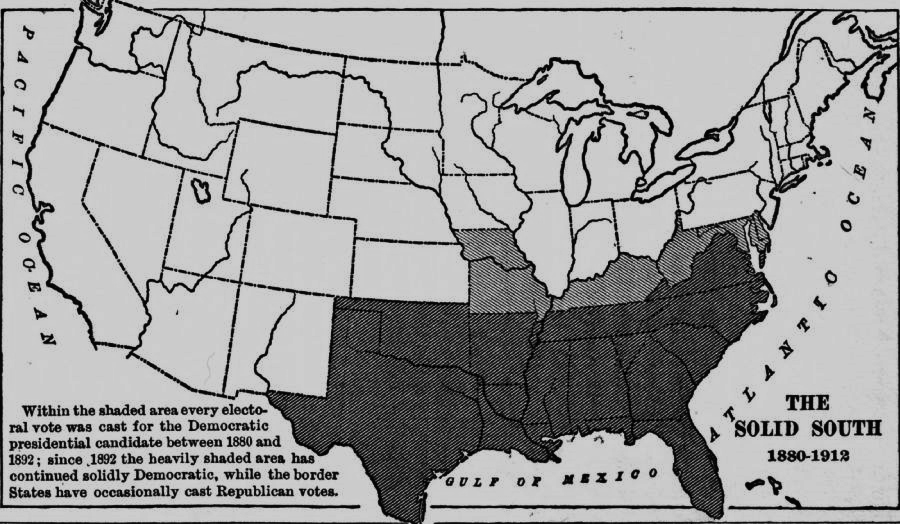
Tactic – Republican Threat to the South
There was a major concern about the northern city shift towards Republicans in ’57. There were recalculations of the alignment across the states. The south could be lost for a generation if the Democrats make a mistake. It was a question between the progressive wing and the Dixiecrats. Johnson used the threat of public sentiment shift, to get the Dixiecrats to consider HR6127. Richard Nixon was supportive of civil rights in order to win African American votes which was a concern as well.

Tactic – Producing a “token bill” in Civil Rights Legislation
Another reason to care was that it was also possible that Paul Douglas and the other liberals could remove Johnson from Senate majority leader. Preserving his self-interest was important since you can’t effect change outside the political infrastructure. So he needed to sell to stay in-line for the 1960 nomination. Washington Post editor Phil Graham also pressed upon Johnson that it was essential for his chance at the presidency that he push through civil rights legislation. Johnson did have support from Texas. Russell (his closest confidante) needed to give Johnson some slack or leeway to get a civil rights bill passed.
On behalf of the 16 million black Americans, Johnson was ready to be a mighty champion and win for civil rights. Filibuster was preserved but Johnson asked the southern camp not to let the Republicans get the “black vote.” Johnson said they needed a “token bill” to show that Democrats cared.
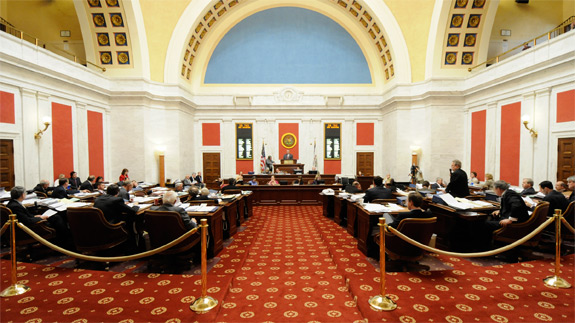
Tactic – ‘Incremental Progress versus Revolutionary Change’ Argument
Johnson argued that they needed a civil rights bill now rather than filibuster and let the demand boil up in ‘60. They might even take away the filibuster, he would shout! And why should the south gamble now and risk a more extensive civil rights bill later? The southerners were also keen to think that Johnson would become president in 1960 and therefore can protect the south from further civil rights legislation. Johnson was misleading the southern men with various arguments. However, his goal was to get the bill to be weakened so much that it was acceptable to southerners and valuable enough to get northern support in ‘60. So in a way, Johnson was a hero? Maybe?
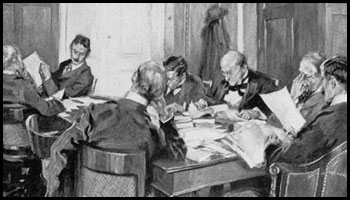
Tactic – Threat of Losing Committee Assignments
Loss of committee assignments. How sad would it be for you if you cared about finance and were not in the ways and means committee? A vote against civil rights means that you would not get an appointment to a steering committee by Johnson. Lyndon Johnson would ignore people who had voted against Johnson’s legislation. Another example is getting a bill reviewed earliest in a session so that the obstruction cannot be sustained. For Johnson, the essence of legislation and the legislative maneuvering is to find common ground and scrap parts that were unacceptable to the Dixiecrats…Too bad the sections that Liberals really wanted (ie. were the most essential aspect of the bill) were also what the Dixiecrats wanted to scrap.
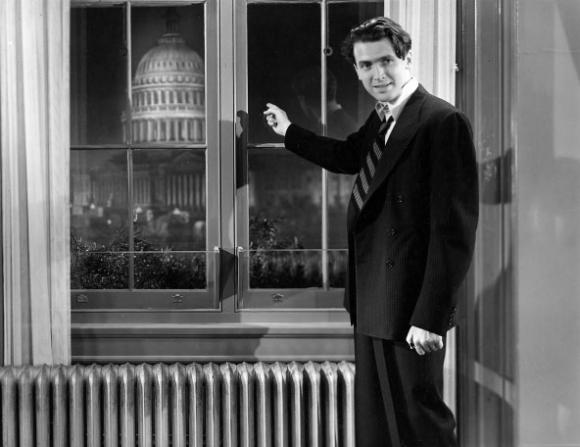
Tactic – The Threat of Filibuster
Another tactic Johnson used was to spread the gossip that other bills will not get passed because the civil rights bill will get filibustered and then block those other viable bills from getting the attention they deserved. The intentional delay of bills allows for recess or end of the legislative session to be the ticking clock that motivates a binary yes/no vote. For example there was a financial hole at the US Postal Service and they weren’t able to cover their OPEX and required federal support. There are other legislative considerations that had time constraints and needed cloture to force the decisions. Johnson may not have wanted to support the civil rights legislation, the bill getting filibustered was very likely. But newspaper articles argued that Johnson was an extension of Richard Russell, a racist tool of the south. So Johnson was damaged on segregation and his southern origins and needed this bill more than most if he wanted a shot at the presidency.

Tactic – Working Himself Out of His Bad Side (the compassionate versus the hurtful Johnson)
Johnson liked to believe his truth at that moment even if it was vile and racist. Caro details several racist Johnson moments:
One was where Johnson’s chauffeur, Robert Parker, who was black and had asked Johnson if he could be referred to by his actual name Robert Parker rather than as “boy,” “n-word” or “chief”… but was rebuffed by an angry Johnson, who said the following: “As long as you are black, and you’re gonna be black till the day you die, no one’s gonna call you by your goddamn name. So no matter what you are called, n-word, you just let it roll off your back like water, and you’ll make it. Just pretend you’re a goddamn piece of furniture” according to Caro’s Master of the Senate. Johnson also used the n-word and derivatives on many many occasions, particularly when talking to Dixiecrat senators.
On the other hand, Johnson would get worked up on the belief of civil rights until it was his truth as well. Johnson had to know and feel that there was a strong reason to support civil rights. As was his obsession, Johnson felt that he needed to get ahead of the ‘left’ and often he would talk to senators in order to convince himself of the strategy. Jean Williams (the Johnson ranch cook) told his story to Johnson about how it was difficult to travel from Washington to Texas as a black man since he didn’t have access to white restrooms. The fact that Williams had to pee on the side of the road even though he was the chef for Johnson…that crossed the line for Johnson. This story became a staple of the Johnson pitch in 1957 and he re-told it many times.
The duplicity of LBJ was not novel but it is the best example of what became an asset in representative democracy. The Senate was more productive under his reign then in any other time in the 20th century. Nixon was quoted as saying, “[Caro’s books] makes Johnson appear like a goddamn animal, of course he was!”
So what to take from it? From the outside, it would be characterized as hypocrisy, doublespeak, inconsistency, as if
- a) the general public is consistent and principled every moment or even when it counts when LBJ is just as imperfectly human and free to change his mind in the moment as we are,
- b) as if the general public ought to control their representatives when the system clearly is not designed in that way, it’s a take-your-vote-then-do-what-I-need-to-do-in-order-to-effect-change/stay-elected system…and reform is coming folks!
On Civil Rights, despite his racist statements and his soft-spot for minority rights, the most important thing is what is not mentioned, what did Johnson think he could concede away to get a bill through: a) to shore support for his ’60 presidential run, b) to do what is morally right, c) to avoid losing his support with Dixiecrats? The provision III of HR6127 was the most contentious since it was full blown Civil Rights. In provision IV there was voter rights: it was unequivocal about basic voting rights. Johnson realized that voting rights might work with a jury trial amendment which would allow women and blacks to sit on juries thus making it much harder for murderers like the Emmitt Till killers to go free.
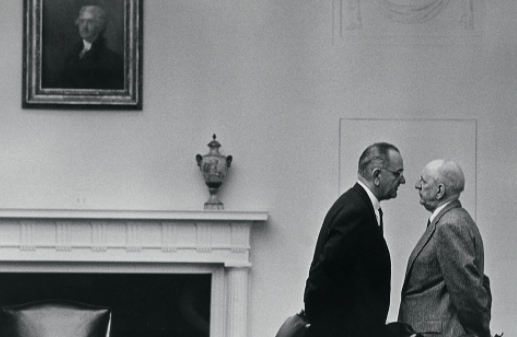
Tactic – Voter Rights Argument – A Nation Within a Nation
Johnson wanted to empower black voters which was a tepid view that was also an agreeable one for “responsibility conscious politicians.” Johnson didn’t really think it made sense to get the “south mad.” He also felt that you can pass a bill that is slim then you could slowly crack open the opportunity for future civil rights legislation. From 1875 to 1957 there had been no new civil rights legislation, but that would be ‘inevitably changed going forward’. This was another of Johnson’s arguments.

Tactic – Horse Trading / Quid Pro Quo – Hell’s Canyon
In the 1957 session, getting the south onboard seemed impossible but not for Lyndon Johnson. He used behind the scenes negotiation to get movement. But to get other uninterested Democratic senators to support HR6127, Johnson found mountain senators as a possible ally in supporting the bill. It turned out that they were trying to build a federal dam built in Idaho. It was also a touchy issue as it was a public dam plan rather than a private project.
The mountain states didn’t care about civil rights much because there were not that many black people in these 4 states, less than 750k African Americans. But they all needed help on the dam from northern Democrats to Republicans, in exchange these mountain folks could support civil rights (HR6127).
Scratch my back, I’ll scratch yours. If the Republicans + northern Liberals would support your dam bill, then you can support the civil rights bill in a backroom exchange.
But the Republicans didn’t like the dam idea since it was public utility development: anti-free market. So the Republicans could pass a civil rights bill. When the Republican senators protested, Johnson explained that even if you supported the dam, it would still need to go through the house interior committee and then a presidential signature would be needed to start construction and that was not likely.
In fact, in a double game, Johnson promised that that dam would never happen to the Republican faction supporting the civil rights bill! Some of the mountain senators didn’t want to publicly support HR6127, ‘can we just squeeze it through?’ At a luncheon, Johnson let them know that he was working hard to get the votes and the abstentions needed to push through a Idaho federal dam. Johnson even made sure that only the minimum number of mountain Dem votes should be made in order to support civil rights for the western senators. Johnson was also happy to let the newspapers think they forced the civil rights bill through themselves!
In political terms, the federal dam never materialized but those senators got 3 smaller dams. If it hadn’t been for Johnson, then the dam authorization would never have happened. Johnson said publicly that there were no horse trading votes but that was how he broke deadlock.
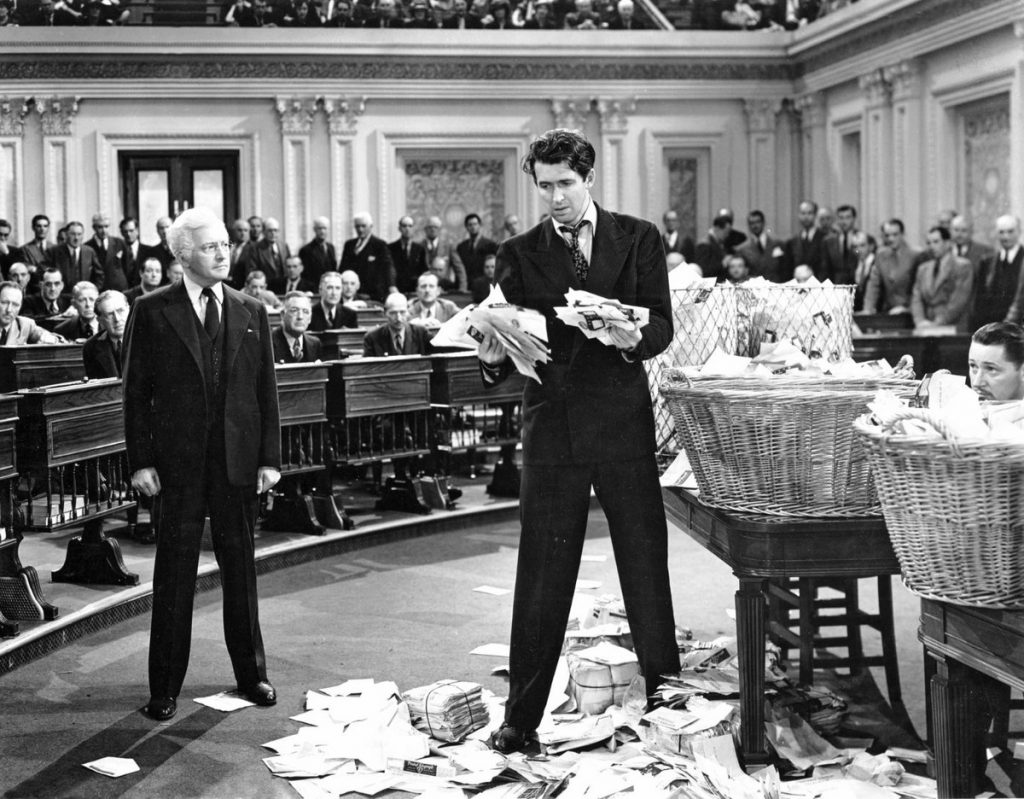
Tactic – Threat of Filibuster to Weaken the Bill
If both soldiers had a legitimate claim to the moral high ground then there must be a middle ground. To break the impasse, getting a liberal and a conservative to ‘cross-the-aisle’ and support the amendment to the bill was also useful. Johnson basically used the Filibuster threat to justify the removal of the most important part of the civil rights bill (part III) but he also had invoked the filibuster in January when he could have removed it from use. In other words, he was playing both sides for a compromised and weaker bill.
The part of the IVth section that Johnson wanted to keep, had a contentious part that needed to be removed according to the southerners, around the jury trial amendment. The southern juries had let the killers in the Emmet Till trial got away with murder. And so removing the ‘right to a white only jury trial’ was a big concession. Ultimately, voter rights in section IV was the core of the final Civil Rights Act of 1957 bill. This was part of Johnson’s legacy as the Master of the Senate.
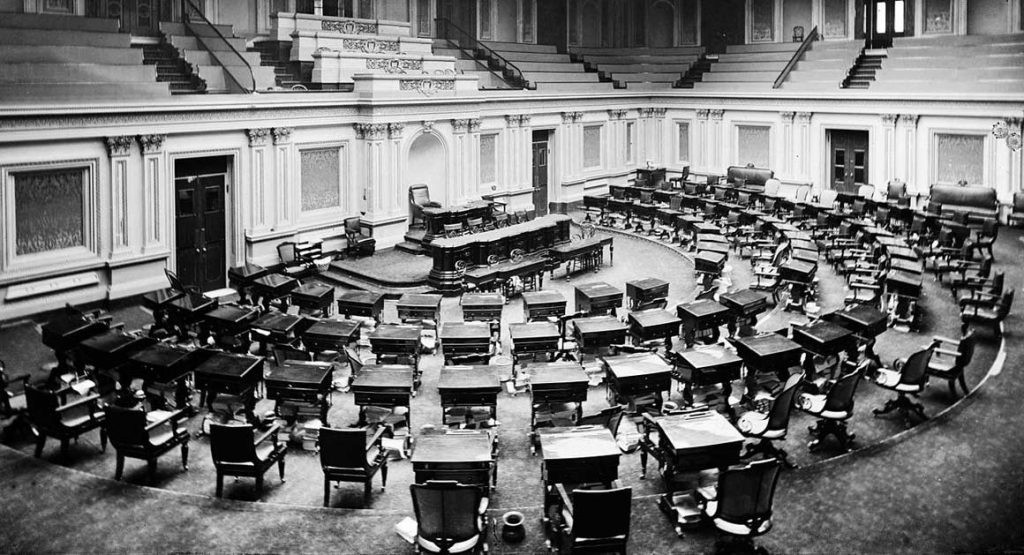
Tactic – Convince The Other Side That They Have the Count
Johnson was a reader of men not books, believing as well that what a man tells you isn’t as important as what he isn’t telling you….[body language, facial expressions]…Just like the 1941 Senator election which Johnson lost in which he announced his totals before this opponent had, here too Johnson knew the power of withholding and wrong-footing his opponent. Johnson tricked Nolan, Nixon and other dissenters into thinking that the civil rights bill count was in Nolan’s favour on the jury trial amendment component. “They will try to get this done this time, but Johnson is short and it will be easier next time…” One of the key tactics is to convince the opposition that they have the votes to win when in fact they do not. Checkmate on HR6127. They did the yeas and nays and it passed. Nixon as VP was outplayed by Johnson.
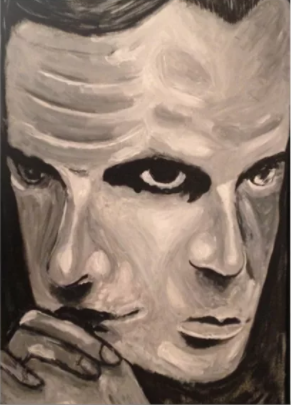
Tactic – Convincing both sides that he was on theirs!
Johnson was an absolute vote counter. And would manipulate senators to make it happen. Johnson would play on the pride of the southerners: ‘we are hicks!’ Johnson would go to one side of cloakroom and talk to the liberal Democrat, “we need to push this through with the jury trial amendment” and then turn around and talk to a Dixiecrat and say ‘we got to deal with the ‘n-word’ bill. We have Republicans sniffing around and need to get something passed.’ Johnson would assume a southern drawl where appropriate and lighten it up when talking to northerners.

Never disclose your strategy
Johnson suggested to Arthur Schlesinger that he had no ambition to seek the presidential nomination. He had lots of evidence to support that claim. He had had a heart attack in 1955 for example when he was only 47. That heart attack was brought on by a life-time of eating a hamburger a day, never exercising, chain-smoking, worked 20 hour days and drinking alcohol….but yes, Lyndon Baines Johnson wanted the presidency. On policy, he didn’t want to get too far ahead of the people. Incremental change happens as senior (senator) power fades into the sunset, their interests become more fringe to the general public. The influence of those interest groups melt away, like snowflakes in spring. Johnson was patient.
Key Takeaways from The Passage of Power
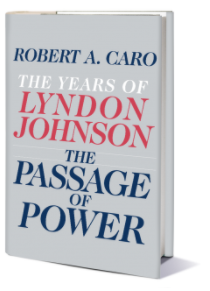
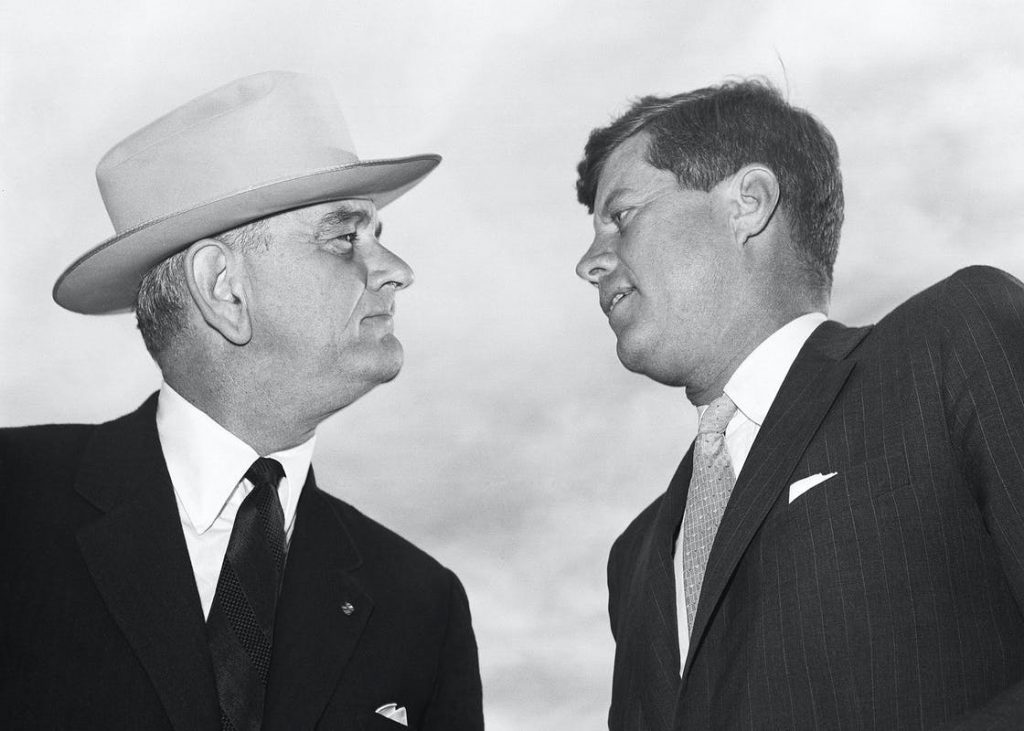
The 1959 – 1960 Democratic Primary
Johnson was indeed the Master of the Senate and would be able to pull in a lot of favours from there, including supporting his nomination for the Democratic presidential nominee. However, his campaign for the presidency was behind the 8-ball. Johnson had a strategy that saw Humphrey had no chance, same with JFK. JFK was Catholic, his father was a financial genius riding the stock market up and shorting it on the way down in 1929 and JFK didn’t look like a president but was attractive (boyish) and lazy. Never said a word of importance in the senate and was frequently in pain (back & pancreatic issues).
Johnson’s lines of attack were that Kennedy was a junior senator, the rich man’s son and that JFK was on drugs for his ailing back condition which meant Kennedy was frequently in crutches (i.e. he would be a physically weak president). From the start, Jack Kennedy worked to shake hands with union members in the factories in Massachusetts but basically his dad bought his first campaign. JFK DID know how to hustle for the Democratic nomination.
Johnson seemed to not be trying very hard for the nomination, just like in ’56. And so Johnson campaigned for the leadership from the senate floor. Johnson was hobbled by the fact that the northern Democrats didn’t like Johnson because the 1957 civil rights bill, which had been compromised to assuage the south and Johnson was perceived as a shill for his southern counterparts.
The fact is…Johnson wanted his Democratic nominee campaign kept secret out of fear of losing. Kennedy was well ahead. Johnson had a tremendous fear of losing this race against the upstart very junior senator…Johnson didn’t want to enter any primaries and wanted to get the nomination from the inside given all the favours he accrued while senator majority leader. Similar to competing against Adlai Stevenson in 1956; it almost seems as if he wanted the votes to come to him (as a dark horse nominee) rather then he come for the vote. So Caro’s analysis suggests that Johnson hesitated to actually run in 1960 up until July. That was very late and meant that he did not have a top-notch campaign as key people joined other campaign. Of course, Kennedy won in the end.

Reality Distortion and the Two Faces of Johnson
Throughout Johnson’s years in the senate and thereafter, he frequently would phone allies and seem to want to describe a reality that wasn’t there. Whether it was the democratic nomination or a particular bill, Johnson would convince himself of a truth that was convenient at the time and to the person he was speaking to in order to gauge the argument. He would then discount any suggestion to the contrary. For example, JFK speaking magic was real but Johnson simply ignored that fact. Johnson fired defeatists. Johnson thought he could win on the first ballot. “Jack Kennedy didn’t have a record!” He also read people closely, did the argument make sense and did it resonate? If it didn’t he would adjust but ultimately he’d impose his will on reality.
To the Dixiecrats, Johnson was a conservative just like them and would support their anti-civil rights causes. To the northern Liberal, they thought he was waiting for the right opportunity, if it should arise, to bring in civil rights legislation. This two faced approach is common amongst effective politicians. And it is up to political scientists and the sidelined general public to better understand and decide if this is a bug or a feature of representative democracy, of ruthlessly getting things done.
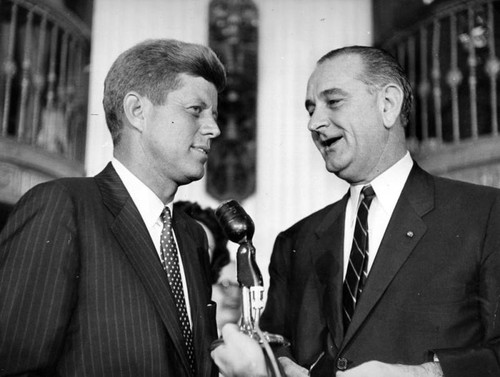
JFK’s Double Strategy
Jack Kennedy had a couple options so that he had a way out. JFK won the nomination, of course, but he also promised that L.B. Johnson would not be on the ticket as his VP to one group of supporters (labour unions in particular) but then decided without Bobby (his closest advisor) the opposite. Namely, in order to win the south, Kennedy needed Johnson to win Texas’ electoral delegates. Getting the Dixiecrats was essential against Republicans.
Kennedy played the political game of chess well. His goal being to secure support…At the convention, JFK said that Johnson snatched the offer from Kennedy’s pocket in his hotel room and accepted the Vice Presidency without question: practically without Kennedy’s say so. Johnson took the job on the off chance that he would be able to run in 1968, or that Kennedy’s back would give out in the interim…When anyone asked, Kennedy then claimed to the public that Johnson forced Kennedy to accept him as the VP thus mitigating the risk of labour union backlash on the convention floor. The decision to pick Johnson was likely a good one since Kennedy won Texas and Johnson campaigned hard with and for Kennedy in the 1960 general. He gave a heartfelt pitch, in defense of JFK’s Catholicism ‘when Jack’s brother Joe volunteered for a suicide mission in World War II, was he a Catholic then? He was an American hero!’ (Caro, MotS, 756)
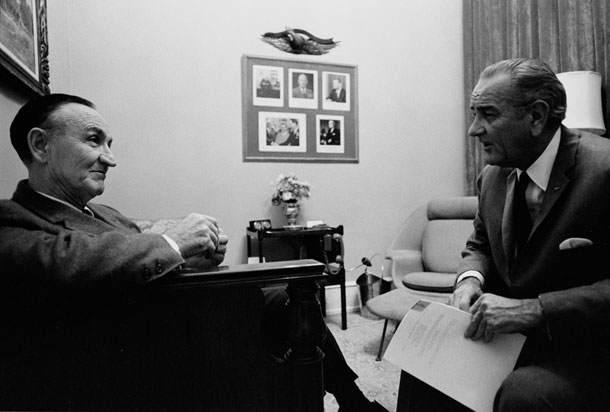
Power Is Where Power Goes
Vice President Johnson still wanted to be the Master of the Senate but that wasn’t the case. He was very firm in his conviction that he should influence both branches of government. He believed no matter what position you have, you can make it a powerful one through your blood, sweat and tears.
- From the campus student president who was hated for his politricks, to now being VP.
- From the congressman who was able to become the conduit to funnel Texas oil money to northern liberals in exchange for support on southern bills, to now being VP.
- From steering naval funds to allies in Texas such as Herman and George Brown, in exchange for funding his future campaigns which is certainly fraud, to being VP.
- From the whip job that no one wanted and Johnson took it making something out of the role that no one had before. Johnson transformed the senate majority leader role too.
Through sheer effort, he habitually changed the dynamic of power much as Robert Moses in New York had. But the VP job is really a spare leader role….

Once he was in the VP office, he was sidelined. Johnson’s plan to oversee the senate’s successes, while VP, were about to be dashed. To have hands in both the executive and legislative branches was not possible. Mansfield was elected to senate majority leader but Johnson refused to vacate the chair. Johnson wanted to remain “the overseer” whenever Democratic senators were convening. However, this was a violation of the separation of powers. Mansfield threatened to resign if the caucus didn’t acknowledge Johnson’s influence. But they only supported the vote to keep Mansfield in control and give Johnson ceremonial titles. Johnson knew, at that point, he was just the VP. He was not able to push this through as his caucus role was shot down.
His theory that power is where power goes (he being the source of power) was not entirely accurate. It was in part the circumstances, the alliances and the chair itself, as the house majority leader, that had created the power and influence. Robert Caro describes the legislative genius of Johnson, the kind that got the legislative branch passing legislation rather than remaining in perpetual deadlock. But things were about to change for Johnson….
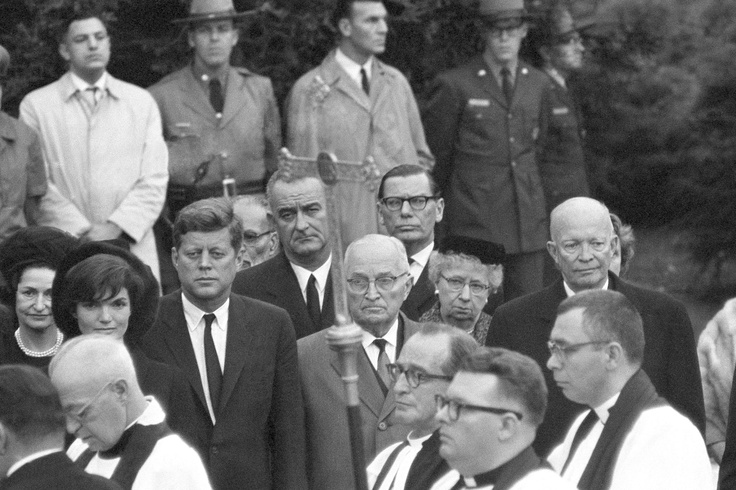
In fact, there was drastic change for Johnson under JFK because he was a lame duck Vice President. The VP role was considered a worthless job ‘that it wasn’t worth a bucket of spit.’ Johnson was lucky to be outside the inner circle, he wasn’t involved in the Cuban missile crisis. He wasn’t part of the Bay of Pigs invasion (which was an idiotic blunder by JFK). JFK didn’t trust Johnson to not leak to Washington journalists. Kennedy actually thought Johnson was a character / caricature. Johnson was actively excluded from Kennedy’s inner circle because he was just like any other constituent: now that we have his votes, he can be excluded: representative democracy in a nutshell.
Johnson was frustrated about all that and so applied all his anger about being sidelined not towards JFK but rather Kennedy’s brother Robert. The two of them did not see eye to eye on much….and Johnson preferred to hate Bobby rather then his boss.
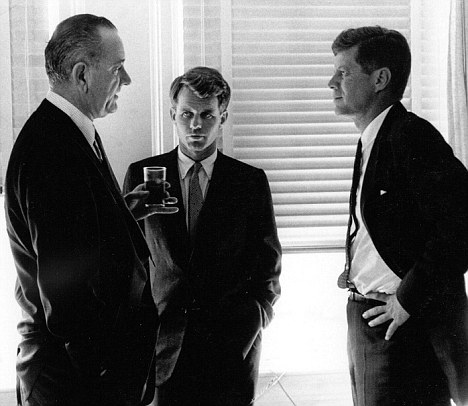
Relationship Maneuvering, the Legislative Politics of the USA
Johnson used tactics like making sure the politician had to phone and ask Lyndon Johnson directly for a favour so that they would know they owed Johnson. He was very mean to his staff, very cruel, compared to an animal according to Bobby Kennedy. If you were a Johnson man, you were treated very poorly by Lyndon Johnson. Johnson crushed McNamara’s spirit as well, according to RFK. Effective politicians are constantly trying to figure out how to build coalitions; and how to understand the voter preferences and then repeat them back to others in the legislative setting. Johnson, it should be mentioned was not just cruel to his own staff, he was cruel to his own body. He felt he didn’t have much time left to live and he was right. He had worked himself to death managing these political machinations and smoked 60 cigarettes per day.
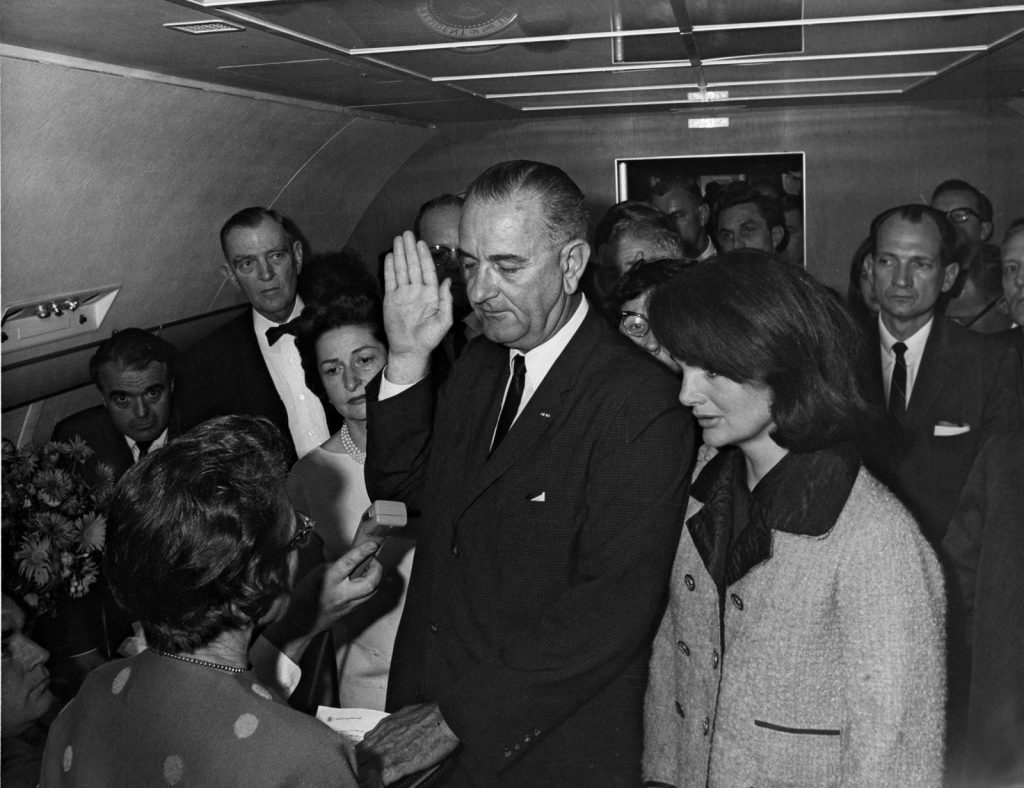
The Assassination of JFK
In chilling detail, Caro describes that Johnson was in the car 50 meters behind JFK’s on that fateful November 22nd Friday in 1963. At the hospital Johnson got word that “he was gone” and immediately sought to be sworn in for continuity. He wasn’t sure if this was a mass coordinated attack considering that most of the cabinet was on a plane over the Pacific at the time of the assassination. Johnson thought of a judge who could do the swearing him in: Sarah Hughes whom JFK had blocked from promotion despite Johnson’s requests in ’61. During the swearing in on Air Force One, Jackie Kennedy insisted she wear the blood stained suit to show the world ‘what they had done to her husband.’ (Caro, tPoP, 456)
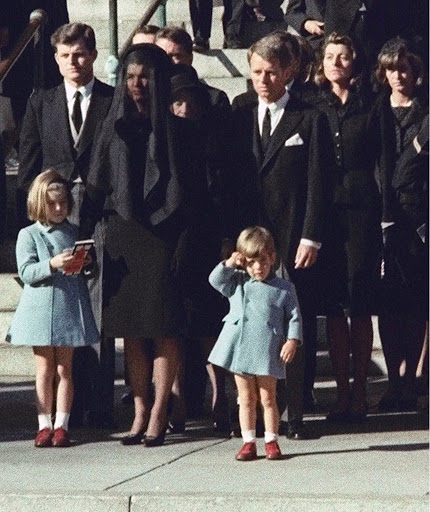
The JFK funeral and procession was a historic pageantry and the live homicide of Harvey Oswald was also another first. But fortunately for Johnson, global tensions relaxed during this time. There is zero credibility in a conspiracy involving Johnson himself.
However, at one point in the mid ‘60, Johnson referred to the assassination as “divine retribution” for Kennedy’s implicit participation in Ngo Dinh Diem’s assassination in Vietnam and for the Cuban Operation Mongoose as “misdeeds coming home to roost” (Caro, tPoP, 678), according to Johnson. Bobby Kennedy quietly had his doubts about the Warren Commission but never expressed them publicly. Bobby did suspect a conspiracy of some kind. Recall that a conspiracy does not automatically = false tin foil hat stuff. In fact, the mob or Cuba might have been involved rather than a single lone gunman with ties to Russia. Absent evidence, this will never be resolved.
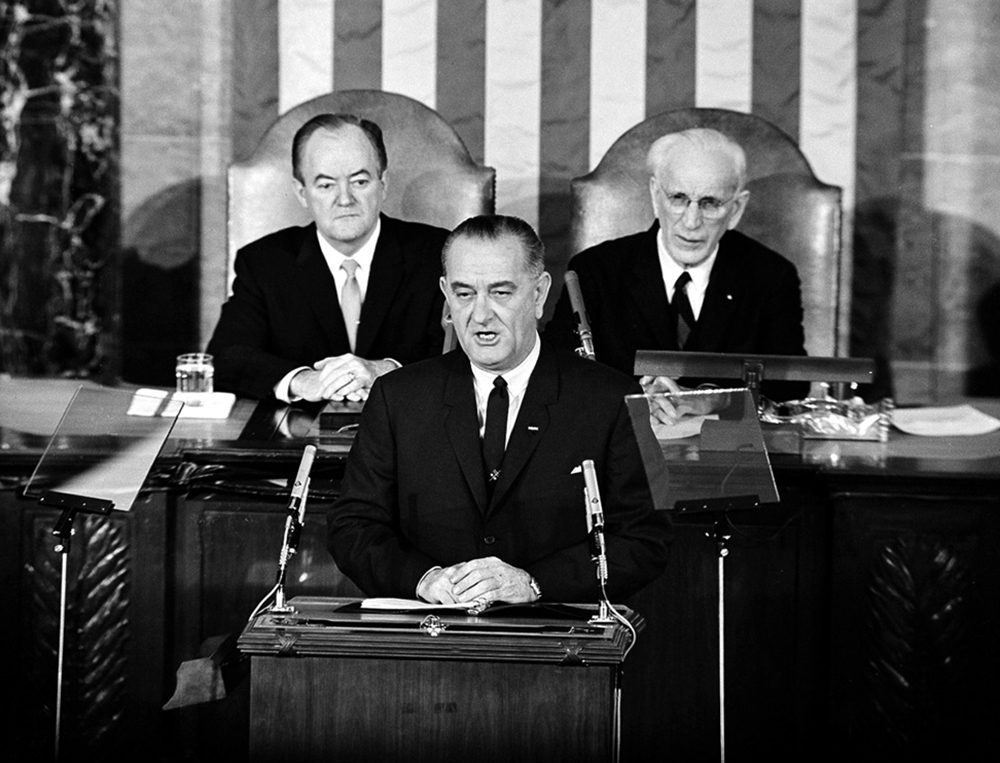
Vice-President transition to Presidency
Johnson was able to ascend to the presidency smoothly. Gave a strong speech a week after the assassination of JFK. That was because of the traditions of transition. Johnson made his appeals to Salinger, Schlesinger and Sorenson (who were Kennedy’s key men) saying that “I need you more than Kennedy ever did.” The goal for Johnson was to humbly request their help, Kennedy ‘was smarter than me, I need your help!’ Kennedy figured after the assassination that his team had 11 months left to shape policy. Bobby Kennedy was weaker then he realized; when Johnson installed anti-Kennedy supporters into a position for Latin America, Bobby realized he really had lost a lot of influence. Johnson ignored Robert Kennedy’s complaints. Salinger, Schlesinger left once Camelot was over. Continuity didn’t really matter by mid-1964. Profiles in Courage was written by Ted Sorensen but ultimately Sorensen was not going to be writing any Johnson speeches.
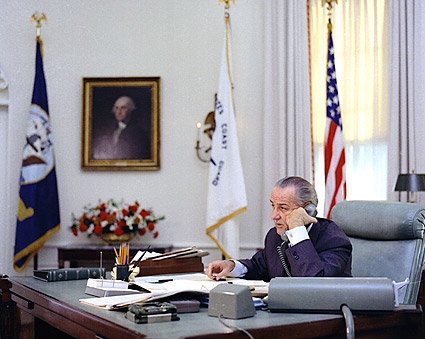
Horse Trading Politics ‘59 to ‘64
In a repeat of the Master of Senate, Johnson deployed all the classic tactics to fulfill Kennedy and perhaps his own legislative legacy. Unfortunately for Kennedy, legislation was not easily passed in his first 1000 days. Kennedy had barely won in ’60…It was in fact a bleak first 3 years as president. While JFK would accept that a senator couldn’t support a bill, LBJ would try to bribe, cajole, threaten and intimated a senator or congressman “to do the right thing.”
Many bills were being renewed for review but not being passed. There was a log jam of bills in the legislative branch in the early 60s. There was a spending budget freeze which meant new legislation didn’t have money for implementation. Johnson had influence with the southern senators who had blocked some of the progress, however. A lot of favours needed payment. Recall that the southern senators were very senior (re-elected multiple times) and were fiscal hawks too. They had got themselves embedded in all the critical subcommittees and committees to ensure they had a majority where it mattered. Support from the southerners was wanting also because the 1957 Civil Rights bill slammed that door shut. Quid pro quo / horse trading is an essential approach that Johnson takes. ‘You did this for me before, now I need to call in a favour. If you don’t acquiesce then it will cost you dearly.’
To break a deadlock in negotiations in 1964, you frequently have to consider taking on the logic of integrative negotiations (ie. how can we make the pie larger), for example Hell’s Canyon in ’57. Find what future benefit can be bestowed for a commitment today. Then at a future date, delivering that benefit or not delivering that benefit (bait and switch) with the consequences calculated out. Johnson felt that Kennedy’s death would give him the chance to get more votes; he traded on JFK’s death saying that we ought to get more civil rights legislation because it was what Kennedy wanted to achieve.
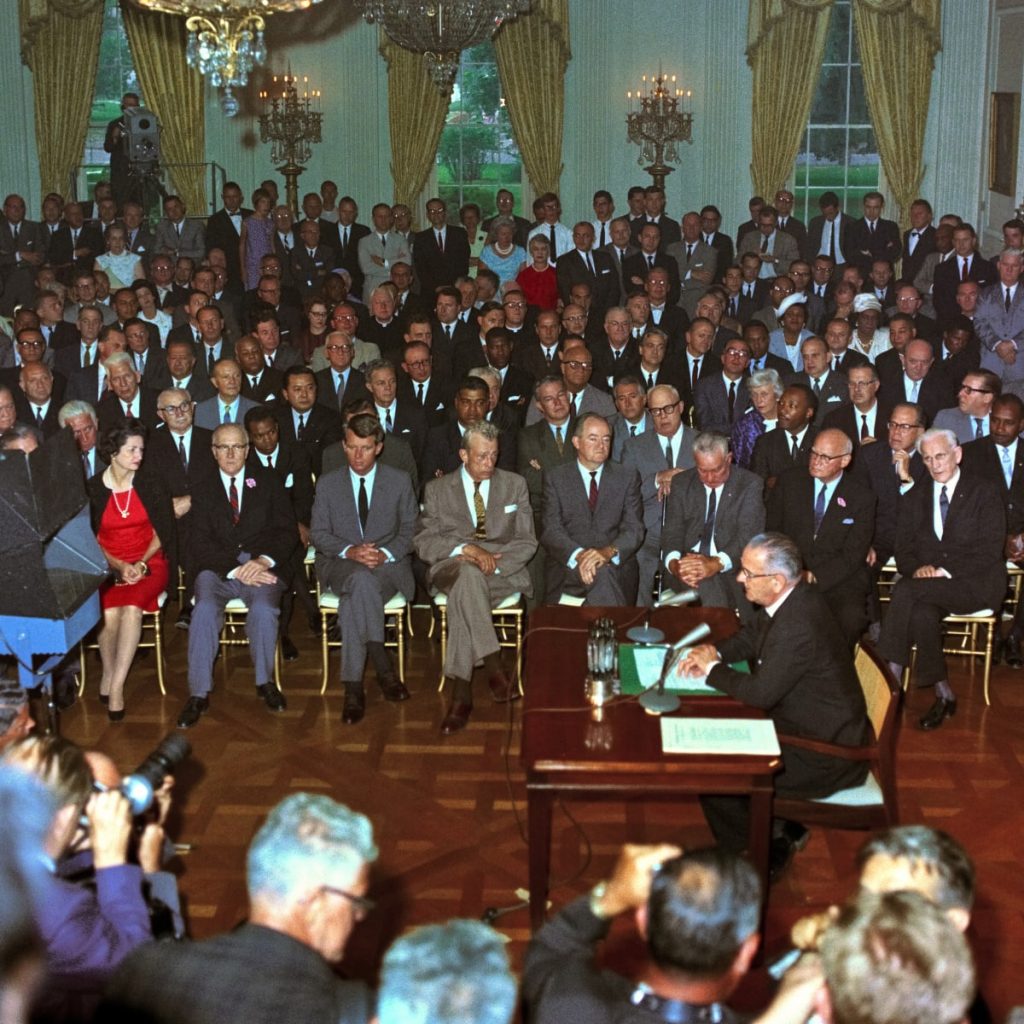
Civil Rights Act of 1964 – Cornering Your Opponent with a Discharge Petition
The Civil Rights Act of 1964 relied on old Johnson tactics. But getting the 1964 civil rights act passed required all the legislative genius that Johnson could muster. Another tactic was to get opponents to either admit they were anti-civil rights or for civil rights through the use of a discharge petition. A discharge petition takes a bill out of committee, and forces a vote: ‘cloture.’
In the ’64 session, they needed to compromise by blocking the introduction of new bills and push a Tax Bill through first. And the northern Democrats learned the rules and lessons of the Johnson senate majority days. Johnson used the crisis for good. To pass the civil rights legislation. To ensure that it wasn’t delayed or manipulated.
Meanwhile, Johnson sucked up to Harry Byrd and Everett Dirksen and other republican leaders; for the “Party of Lincoln” they needed to support civil rights legislation to outflank the Dixiecrats. Johnson was the only senator to attend Harry Byrd’s daughter’s funeral. After that, Byrd said Johnson would have his ear. Johnson played hard on the fiscal conservatism of Harry Byrd. There was this Tax Bill that was also in the way of the Civil Rights bill. It would threaten to log jam the Civil Rights Legislation in 1964, so Johnson ensured the Tax bill ‘didn’t get behind’ the Civil Rights bill i.e. the Tax Bill would be addressed first swiftly and before Civil Rights. And of course, Byrd wanted to read the budget under $100 Billion and Johnson knew that Byrd would audit the balance sheet, so concessions had to be made. Johnson with the help of Harry Byrd maneuvered to get the Tax Bill out of the way. Cloture on the civil rights bill required Republican support of 25 senators. So LBJ phoned each senators. ‘Can I count on you now?’ ‘Yes, sir!’
In Book V, according to Caro there will be another example: The 1965 Civil Rights Bill was stuck in the House rules committee, Johnson needed Republican votes to get a discharge petition to get it out committee. Charles Halleck, the Republican leader in the committee, refused to agree to a discharge petition. And Johnson learned that Halleck wanted grants for Perdue University so while Johnson and Halleck are in the Oval office, Johnson calls up James Webb of NASA and says ‘I want to see what you can do for Halleck.’ A few minutes later Webb phones back and says ‘I hope Halleck will be happy with what I can offer’ and Johnson said ‘I’m not talking about hoping get ‘er done!’
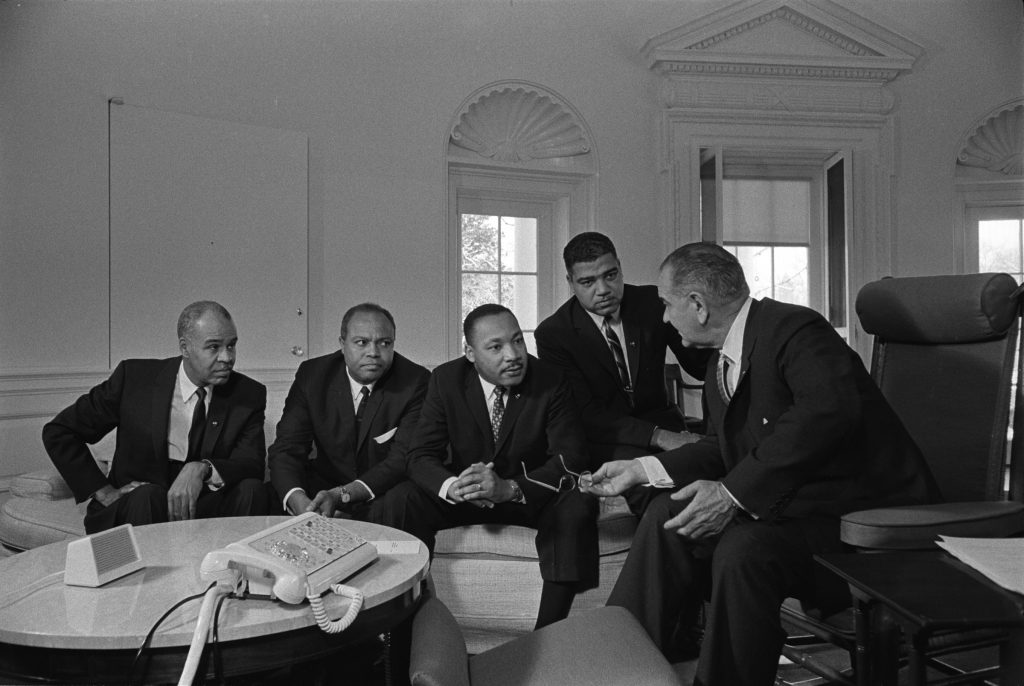
Tactic – Get External Stakeholders On Your Side
Johnson worked with external stakeholders to push civil rights legislation through. Johnson met with Martin Luther King Jr and Johnson provided a list of politicians for Luther King’s people to apply pressure upon in the committee that the bill was trapped in. Johnson wanted them to go and get “yeas” to move it out of committee. One of the stories Johnson told sympathetically was of his secretary who was black and had to pee on the side of the road because there were patches in the a green book (i.e. no black friendly gas stations) on her trip down to the Johnson ranch. There was also the Mississippi murder of the three civil rights workers to spur support. All the technical maneuvering and the pressure from the public explains how Johnson got the Civil Rights Bill of 1964 passed. Pushing hard. Counting votes.
Dick Russell (Dixiecrat leader) did not want a civil rights bill and thought that the civil rights bill would split the Democratic party. He was right.
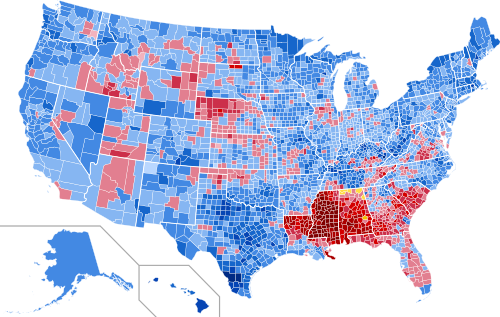
The 1964 bill proved costly in that the Dixiecrats shifted to Republicans as you can see in this map and it meant the south was locked into Republicanism for a long time to come….for generations. But is was directionally the right thing to do and perhaps JFK would not have got it through…Johnson knew how to break deadlock, the 1964 election was a blow out for Johnson.
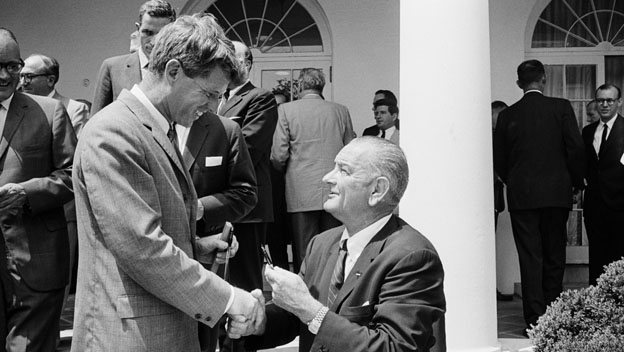
Bobby versus Lyndon
Back in 1953, Bobby Kennedy had an awkward altercation with Johnson in the senate cafeteria where Bobby didn’t want to shake Johnson’s hand. Bobby Kennedy was in fact an angry young man, and not the brightest student in college and his father’s approval was very important, especially since it was never fully given. Bobby hated Johnson because one of Johnson’s favourite stories about FDR involved Bobby’s dad. Ambassador Kennedy had just returned from the UK and was known to have been looking to switch support to the Republican and so FDR, with Lyndon Johnson present, phoned Kennedy senior and in a booming voice said ‘Joe! How are you doing? Can you come for a dinner meeting tonight?’ The plan was to get Kennedy’s support to ensure Joe made a pro-FDR public speech, FDR hung up the phone, turned to Johnson and said ‘I’m gonna to fire that sonnovabitch!’ Once the Ambassador declared his support for FDR, FDR literally fired Kennedy senior the next day. Exposing the tribalism and importance of loyalty.
Throughout the 50s, Johnson would try to embarrass Bobby like a bully might by insisting on shaking his hands and looking him straight in the eye. Now, after JFK was gone and Bobby was moving towards a divergent ambition for the Democratic Party, Johnson wanted to show confidence in Bobby (still the Attorney General in 1963 – 64) so he sent him to Indonesia, Asia. It didn’t go well. Bobby was upset…..You see, Johnson liked to see the jugular of his opponent. The ability to hurt is a critical tactic that Johnson used over and over again. The Johnson treatment = physical intimidation. He’d focus in on his opponent’s weakness and exploit it. Bobby said that Johnson knew how to ferret out a person’s weaknesses and that was disturbing to him.
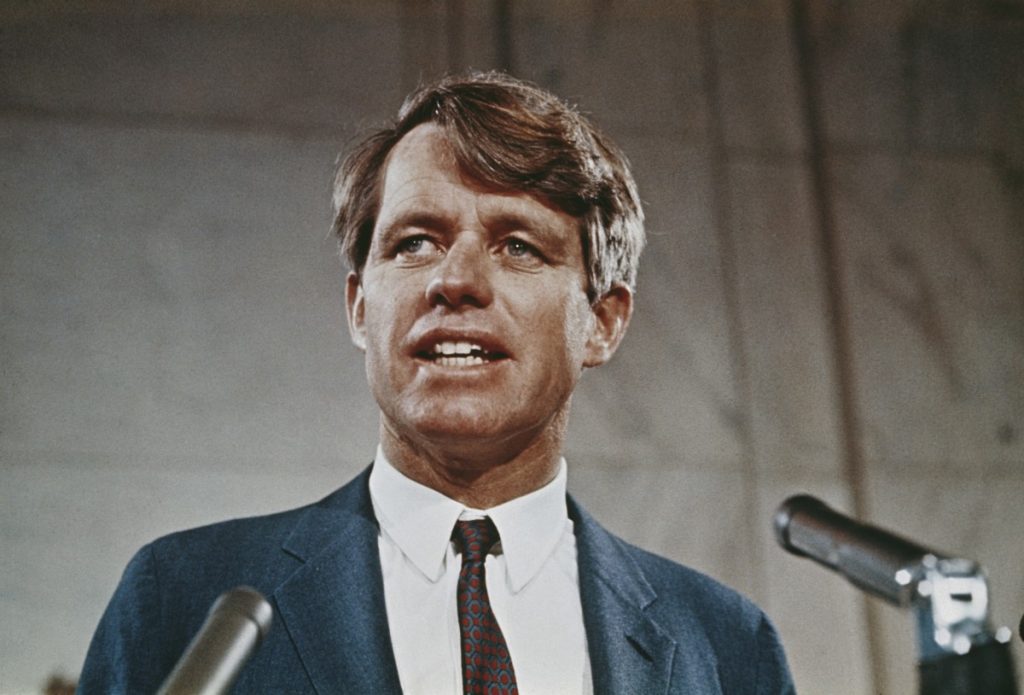
Bobby Kennedy Assasination
After Bobby Kennedy was shot while walking through a kitchen as he was leaving his California primary victory speech in June 5th, 1968, Johnson asked Joey Calliphano about Bobby Kennedy: ‘is he dead, is he dead yet’” Once the news was realized, Johnson then announced the death in a letter that heartwarmingly shared condolences and spoke of Kennedy’s service to the country. Although, privately, Johnson also said that he wasn’t sure Bobby should be buried in the Arlington cemetery….
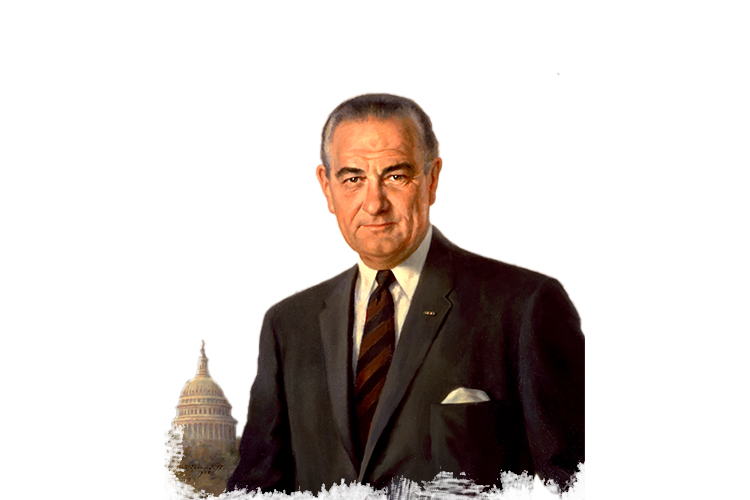
Power Over Policy
Johnson was interested in balancing powers not developing policy. It’s what can be passed (predicting the legislative path) rather than the actual public’s requirements towards policy. There is no way to understand the public so it is easier to look at the representatives (even though they often ain’t representative). Johnson didn’t think the academic approach of Arthur Schlesinger was of much value. Actions over words! ‘Schlesinger knew how to think about issues but he didn’t know how to decide.’ Schlesinger wasn’t a leader but a follower.
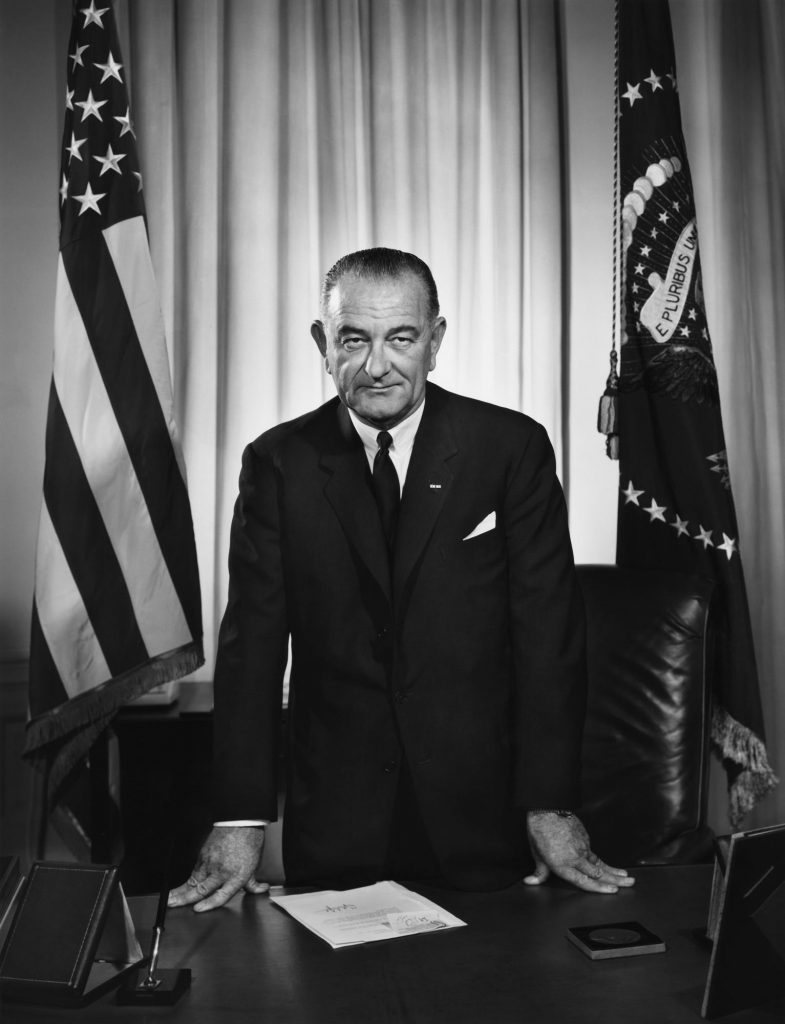
The Way Things Are, Not The Way Things Ought To Be
Johnson exhibits politics as it, is not as it should be. Relationships are the driving force. Not the values of the people. Not the democratic aggregate demand. We can bemoan this approach but ultimately, everyone wants power and it has to be earned and wielded, not distributed to the loudest Twitter accounts. That sentiment is in conflict with the arch of history which bends towards true democracy. Perhaps that will change in the future, but this is the way it was then and continues to be….understand that first!
The public doesn’t ratify the decisions made, and the polling booth is hardly a proxy for their wants and needs. Representative democracy is a very weak form of democracy as Johnson shows in that the relationships and tactics he deployed are alien to the public interest. When it came to white students protesting over having a black class-mate (the thin edge of the wedge!) democracy and validation in crowds can be an ugly thing… For Johnson, he was the power and through his negotiations with factions within the legislature, was able to effect change. So in Johnson’s parliamentary world: the general public is modestly invoked but not in control or involved.
To have citizens vote in a binary way between two policies already developed would be a weak form of true democracy, so to truly get further down the field towards true democracy, you also need the policy formulation to be developed by citizens in a marketplace. Active, creative participation in policy would be closer to true democracy. Of course there are a lot of “Yeah But…”
What we have had is a kind of “manufactured consent” (Lippmann), to ensure that the elite class of civil servants and politicians control the government and the citizen, instead of direct involvement, participates as consumers rather than being informed, weighing the options, acting and controlling decision-making. And, there is seldom a rigour audit of what has worked in the past to gauge what policies should be in place in the future! Again, a lot of “Yeah Buts…” The mission for me is clear…..
To sum up Johnson, he’d say ‘Ask not what your president has done for you, ask what you have done for him lately?’ Power is indeed where power roams.
As for the next volume, Book V, it is going to be absolutely amazing. Can’t wait!

